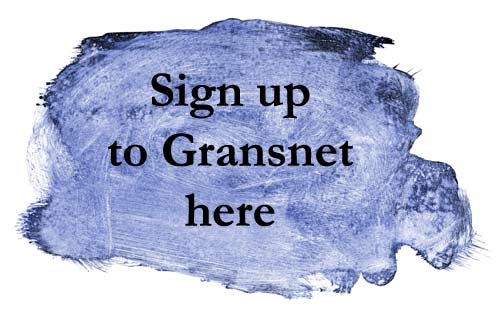
How does Airbnb work? A guide to earning extra income as a Host
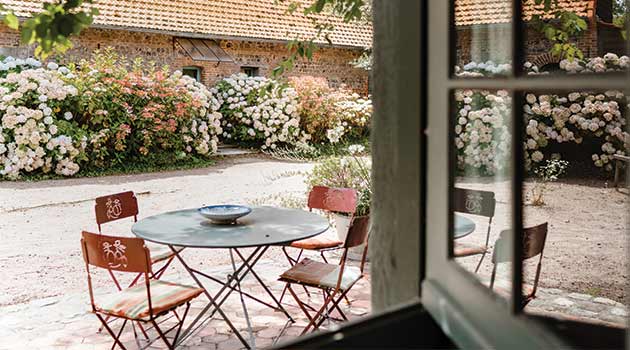
Since it was founded in 2007, Airbnb has become very popular, allowing people to make extra income by renting out their house (or even their spare room) to guests looking for an authentic local experience. Whether you’re looking to list your own house or holiday home to earn some income, here’s our guide to Airbnb - including one Gransnetter’s experience of hosting. Read on to find out how you could make some extra income by listing your space on Airbnb.
This page is sponsored by:
Hosting on Airbnb - have you considered it?
If you have a spare room (or two), an annexe, or even an entire property that could be an excellent holiday let, hosting on Airbnb could be a great way to make some extra income. Interested but still not sure if it’s right for you? Read on for one Gransnetter’s experience of listing their property on Airbnb, plus tips on how to be a great Host.
SandyGran’s Host story
When SandyGran started hosting her holiday let on Airbnb, she was pleasantly surprised at the flexibility, level of service, and fees rate offered in comparison to other platforms and providers.
She’s not alone: in a recent survey sent to new Hosts on Airbnb the main reasons why those over 60 were hosting were having more spare time now that they have retired, generating some extra income (from their spare space or empty property) and connecting with new people and guests.
Still, the thought of having someone in your house can be daunting, and if you’re considering hosting, you may have questions as to how it all works. Here’s SandyGran’s story...
Benefits of hosting – earning extra income
Last summer, Hosts in the UK earned more than £1.5 billion, with the average Host pocketing nearly £6,000*. So, whether it's for retirement or to bulk-up your savings pots, earning extra income is always welcomed and if you have space available, listing on Airbnb is a perfect way to start. As SandyGran explains:
“Seven years ago, I bought a little house in Windermere in the English Lake District. My husband and I had talked for many years of buying a bolt-hole that we could use for family holidays and also rent out for a bit of extra income. I was hoping to retire at 60, but wouldn’t be able to draw my state pension until 66, so was looking for something to fill the gap.
We had been looking for a while, but nothing seemed to quite fit the bill, so we kept looking and kept saving! Then one day I saw a very interesting property in the town centre with its own parking spot that was already being run as a holiday let. This little two-bedroomed detached house looked ideal. We viewed, made an offer (to include all furniture and contents) and three months later I had become a holiday-let landlord!
The cottage was already listed with one of the big holiday letting agencies, and for the first three years, while I was working full-time, we stayed with them. I learnt a lot about the holiday letting industry – how to set rates, which are the peak seasons, what should be provided, how to improve booking rates, how to communicate with guests. The agency handled the bookings and the finances, but I employed my own cleaner (the wonderful Michelle, also inherited with the property), and contacted the guests to let them know arrival procedures etc.”
Prospective Hosts in the UK can learn more about how much they could earn by sharing their space on Airbnb through the What’s My Place Worth tool.** The interactive tool tells you your estimated income based on geography and the type of listing, as well as using previous Airbnb booking data in the area.
Greater flexibility – more time for family, more time for yourself
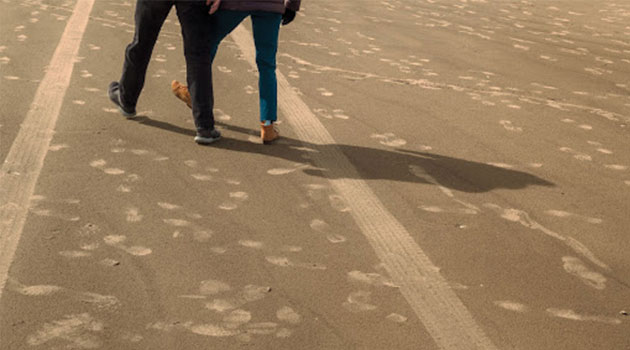
“Although I was generally pleased with the previous agency, and had built up a very good occupancy level, there were a couple of things that were not so good – they were slow to respond and they also took a lot of commission (nearly 30%) on bookings, but the biggest niggle was that they dictated how many weeks we could use the property ourselves, or for friends and family. So, when I retired, I decided to leave the agency and list the property on Airbnb instead. We had used it a couple of times by then as holidaymakers ourselves and it was growing in popularity.”
“I love the control that I have when hosting on Airbnb. I set my own rates, take and publish my own photos, set my own cancellation policy, and communicate with the guests (who I can decide whether to accept or decline).”
Grow as a Host with Airbnb support
“As Airbnb takes only a service fee, I did not expect the same level of service as I had received from the lettings agency. However, when I had a problem with a potential guest, I tentatively phoned Airbnb for advice and was delighted to be put through to an actual person straight away, who offered to phone the guest and resolve the problem for me. Expectations exceeded!
The fact that I can manage my Airbnb listing online from anywhere in the world became suddenly more relevant last year. We became stranded in New Zealand whilst visiting our son when the pandemic struck. I was able to manage everything remotely with no problems at all. I was delighted with the way Airbnb responded to the Covid situation. At the start of the pandemic, all my guests who had to cancel were given a full refund and I was even given a bit of money for my troubles. When I read horror stories about some holidaymakers who couldn’t get their money back, I was so glad that I wasn’t putting people in that situation!”
You can learn how to become a great Host with the variety of resources, tools and tips Airbnb has available. You can even ask a ‘Superhost’ and get free one-on-one help from Airbnb’s best and most experienced Hosts, connect with an experienced Host who will be available to answer all your questions or join a complimentary online class to learn more about hosting.
Share what you love
“So, I have no regrets over becoming a Host on Airbnb. If I were advising someone else, I would say: research your area carefully. As we are in an outdoor activity location, we tend to get bookings all year round. Describe your property honestly. Always reply immediately and in a friendly manner to guest queries. Keep your property in good condition. And finally, don’t forget to book the occasional holiday break for yourself!”
Things to consider before hosting
Before you can get started as a Host, you need to check what the regulations are around hosting short-term paying guests in your area. For instance, if you rent your home, you need to get permission from your landlord and if you’re a homeowner, you should check whether you need consent from your mortgage provider. It's also worth discussing your plans with your neighbours and taking their thoughts into consideration when creating your house rules.
This Airbnb article on responsible hosting in the UK, is worth a read before you get started.
Airbnb has partnered with leading safety experts to produce a guide for the UK host community, which includes advice on how to stay safe while hosting and information on how to stay safe online. Airbnb also has diverse host community clubs in your local area which give Hosts the opportunity to exchange hosting advice, attend meetups and access exclusive Airbnb news and hosting rewards.
The idea of opening your home to strangers can be daunting, so Airbnb provides some guarantees for your peace of mind including:
ID verification process
Although Airbnb strongly encourages all guests to submit a profile photo and requires them to verify their phone and email before they can make a booking, for extra security Hosts can ask that all prospective guests have their IDs verified before booking a stay at your property. You can find out more about this here.
AirCover for Hosts
In the event your place or belongings are damaged by a guest, there’s AirCover for Hosts. AirCover provides a host with up to $1,000,000 in damage protection including pet damage and offers income loss protection if you have to cancel confirmed Airbnb bookings due to guest damage.
The programme doesn't cover loss or damage to property due to wear and tear and Airbnb recommends that hosts secure or remove valuables when renting their property.
How to start an Airbnb business
With ongoing travel requirements post-pandemic, many holidaymakers are choosing to holiday in the UK instead of more far-flung destinations this summer. With this in mind, now is the perfect time to publish a listing on Airbnb and start your journey as a Host adding some more income to your retirement fund.
You can learn how to become a good Host with the variety of resources, tools and tips Airbnb has available. You can even connect with an experienced Superhost who will be available to answer all your questions or join a complimentary online class to learn more about hosting.
1. Create your listing
Taking less than 10 steps to complete, listing your space on Airbnb is both quick and easy. Whatever space you're working with, make sure to give a detailed description that includes all the information that you would like to know before booking accommodation, for example: What's on offer nearby? Is it good for families? Also, make sure to take plenty of pictures in order to give prospective guests an accurate idea of the space. You will have full control of your availability, pricing, house rules, and how you interact with guests. You can set check-in times and handle that process however you like.
If you need additional support, New Hosts can request help from a dedicated Airbnb ambassador.
2. Welcome guests
You can chat to your guests before they arrive using the Airbnb messaging feature.
Hosts clean the spaces guests can use, and provide essentials like clean sheets, towels, and toilet paper – beyond this, what you choose to offer is up to you.
You can greet your guests in person, if you like, or simply leave a key or a code for them to collect.
3. Get paid
Guests are charged before arrival, and payment is transferred to you 24 hours after check in, minus a service fee charged for Airbnb’s platform services. You can choose which payment method to add to your account, including PayPal, direct deposit or international money wire, and a few other ways too.
Booking on Airbnb as a guest
So you’re looking for a place to stay to make some precious memories – whether that’s with family, friends, a partner or a solo getaway. Here are our tips for finding the best place for you.
Fill out your profile
Some places have the option of booking instantly, but many require you to ‘request to book’, so the Host decides whether to accept your reservation. After you've decided on a place to stay and filled out your desired dates you can request to book a stay by telling the Host a little bit more about your trip.
Therefore, you'll save time in the long run by clearly explaining what you’re like as a guest, where you’re from, what interests you have, who you travel with, and more. So, be sure to complete your profile and add a photo. Then drop the Host a message, tell them a bit about who you are and what you have in mind for your trip, and wait to have your booking accepted. This usually only takes a day. After all, by providing all that information about why you’re a great guest, they'll be more comfortable welcoming you into their home.
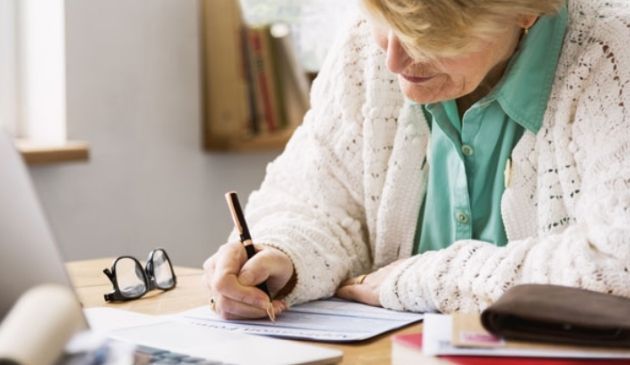
Read the reviews
This is the most straightforward way of finding out what the stay will really be like and if it's worth booking. Just be aware that your room may look slightly different in real life. Leaving a review after you've stayed somewhere is common courtesy in the world of Airbnb - so make sure you do that as well so future guests can also make more educated booking decisions. Bear in mind, your Host will also give you a review following the stay.
...and the listings
It seems obvious, but check that the place you want to stay has everything you need such as wi-fi and kitchen essentials, as well as any childcare or accessibility requirements. You can filter search results to only show those which have the amenities that are important to you. As you aren't in a hotel you may need to remember to bring all your own shampoo, etc. as well (unless your Host says they provide it in their listing). Essentials like bedding, towels and toilet paper will always be provided. Airbnb also has a handy tool for checking the approximate location of a listing on the map. You’ll receive the exact address once your booking has been confirmed.
Review the final cost of your stay
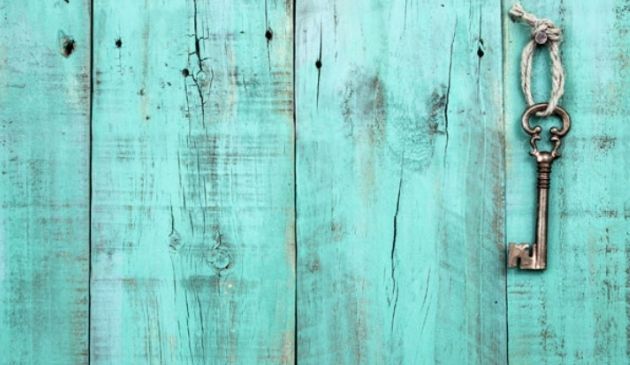
When you request to book a stay you can review the final cost of your stay, including a breakdown of fees, such as the Host’s cleaning fee and Airbnb’s service fee. Also be aware that Hosts set their own cancellation policies, so be sure to check what that is before you book to confirm it works for you.
Peace of mind
Airbnb has a 24 hour customer support team, so in the unlikely event that you run into trouble with your stay, you can always give them a call. Payment should always be made through the Airbnb platform to help ensure your funds are safe.
Be conscientious
As mentioned, it's not a hotel. You are staying in someone else's home and a little common courtesy goes a long, long way. So, remember to clean up after yourself and be considerate of the neighbours.
***
*Total and median UK host earnings for 1 June 2021 – 31 August 2021.
Images: Shutterstock
